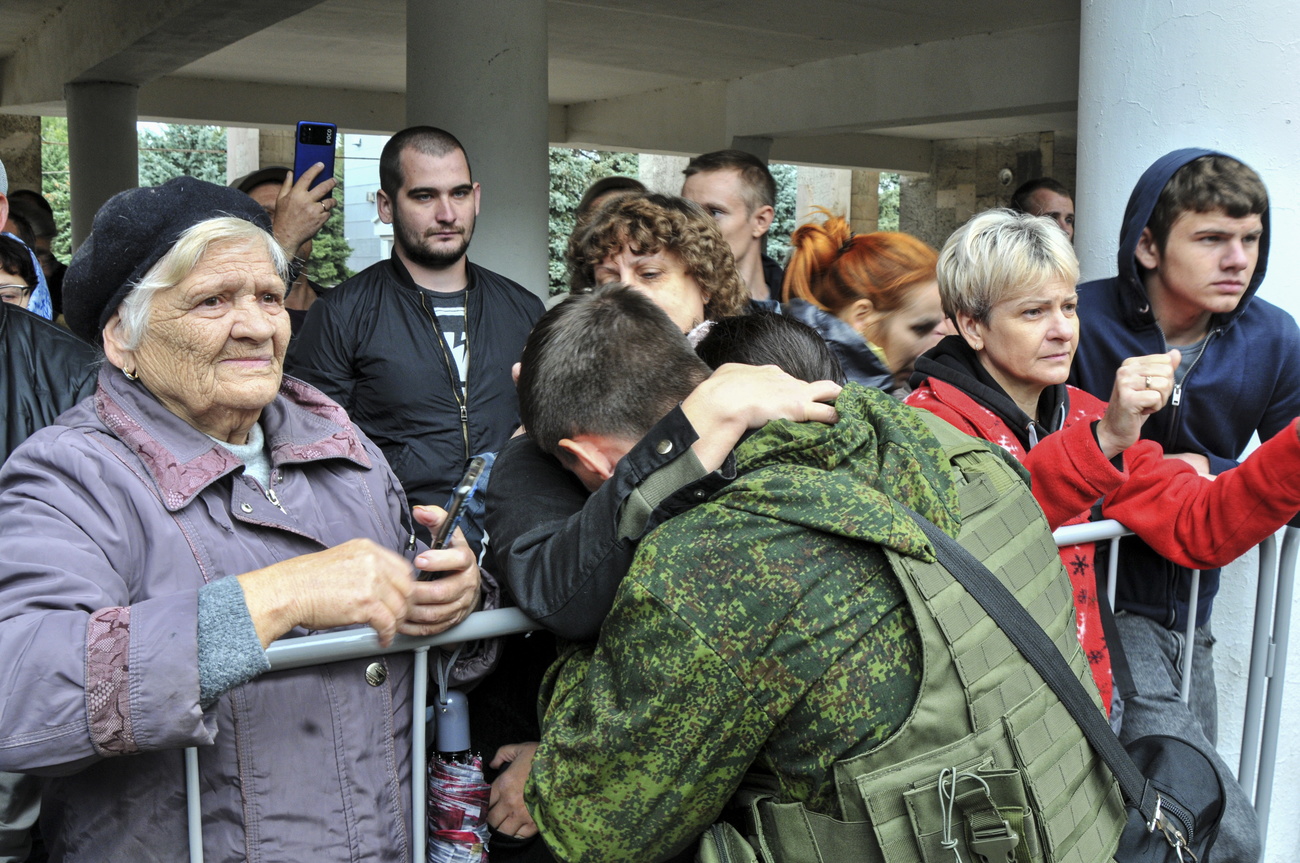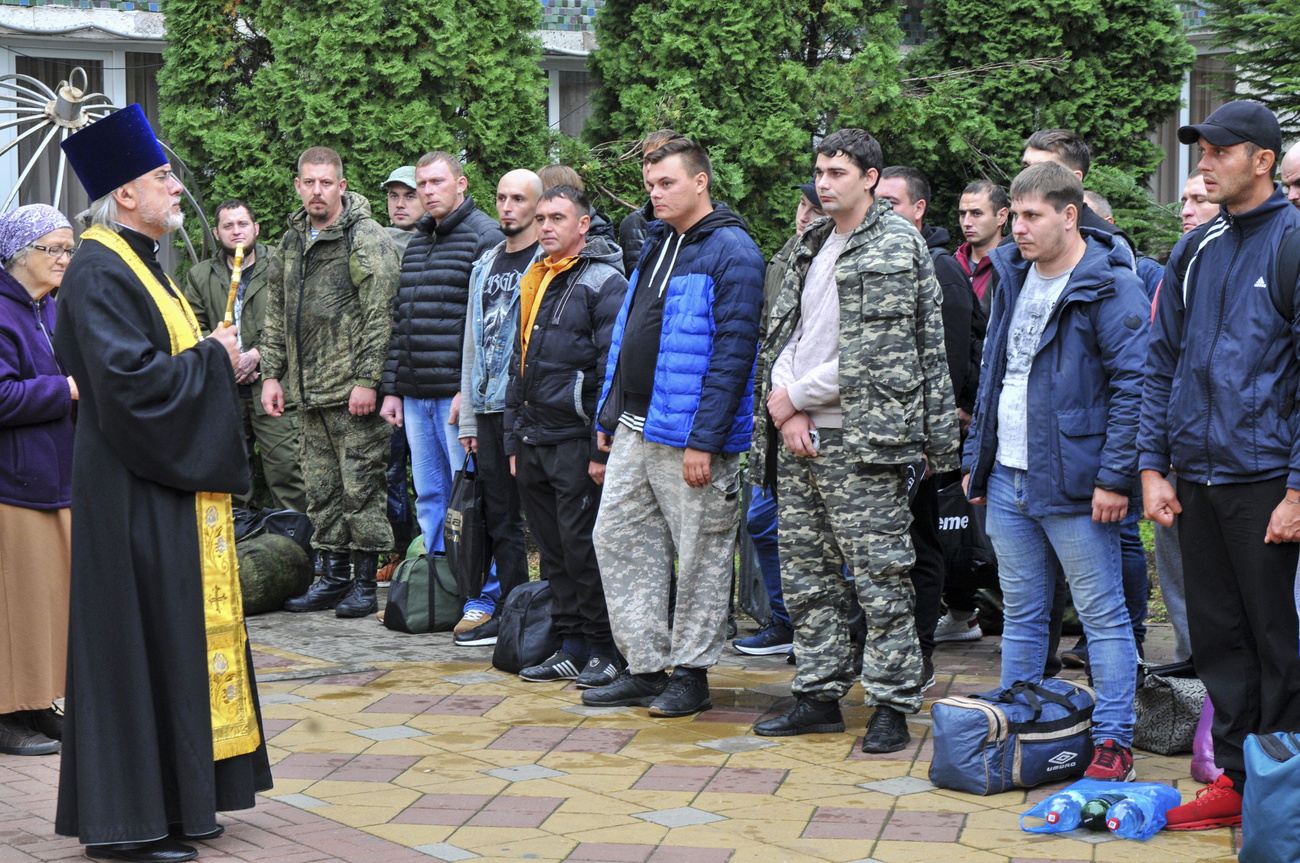Are Russian deserters entitled to asylum?

As a result of partial conscription in Russia, many have fled the country to avoid being drafted into the army to fight in the war in Ukraine. They are not welcome everywhere.
While Germany accepts Russian deserters, the Baltic countries and Poland categorically say no. Finland is also opposed. But don’t those who are politically persecuted have a right to protection in these countries? And what does international law say about the current situation? Alberto Achermann, Professor of Migration Law at the University of Bern, clarifies.
SRF: Russians are being politically persecuted because they refuse to go to war. Can you call them refugees?
Alberto Achermann: Yes. If a person is persecuted for their political beliefs, they have fulfilled refugee status under the Geneva Convention. If the current reports that Russians who oppose going to war against Ukraine are punished with heavy prison sentences of up to 15 years are true, the state thus proves that it considers these persons to be its enemies, i.e. it persecutes them for political reasons.
This so-called “political malus” – i.e. a criminal sanction that is discriminatory, arbitrary or disproportionate – is a strong indicator of persecution.
According to Swiss law, conscientious objection or desertion alone does not lead to a right to asylum. The Asylum Act expressly states: “People who are exposed to serious disadvantages or have a justified fear of being exposed to such disadvantages because they refuse to do military service or desertion are not refugees.”
However, if there are specific circumstances in which the punishment is based on additional, refugee-related motives and is therefore discriminatory, a conscientious objector or deserter fulfills the status of a refugee and is recognized as a refugee. For this reason, the State Secretariat for Migration (SEM) examines the circumstances of each individual case intensively and in detail for each application, was the response when asked by SWI swissinfo.ch.
The SEM is monitoring the situation in Russia very closely. “So far there are no signs that the number of asylum applications from Russian nationals will increase drastically as a result of the announced partial conscription.” A slight to moderate increase in asylum applications is possible.
A total of 128 Russian citizens had applied for asylum by the end of August this year, which corresponds to 1.03% of all asylum applications in Switzerland. The months of March, May and June saw the highest number of asylum applications. In September, the SEM has so far not found any disproportionate increase in Russian asylum applications.
SRF: What punishment for deserters would be proportionate?
A.A: You can’t say that across the board, but 15 years is definitely too much. However, it is not only the length of the prison sentence that is relevant. Legal questions also arise as to what the living conditions of these people will be like. Are they put in camps? Are their human rights guaranteed in detention? Do they even face a deployment at the front? However, the evidence indicates that Russian conscientious objectors are being persecuted by the regime.
SRF: Now, however, individual states have signalled that they will categorically not accept Russian deserters. Wouldn’t at least an asylum procedure be appropriate?
A.A: It is a breach of international law for people to be returned to a country where they are at risk of persecution or torture, or inhuman or degrading treatment. We are talking about the so-called refoulement ban here and are dealing with mandatory international law, i.e. the area of law that must not be restricted under any circumstances. Incidentally, the ban on refoulement is also violated if people are categorically turned away at the border.

SRF: However, the potential host states fear that the Russian regime will try to undermine their internal security under the guise of the refugee movement, for example by smuggling in regime agents.
Filing an application for asylum does not mean that protection must automatically be granted to this person. However, the states must examine the individual case. If this check turns out that the applicant is a Russian agent or something similar, this would be an obvious case of abuse.
This person would then not be considered a refugee and could of course be turned away. However, a general and sweeping rejection of these people represents a clear breach of mandatory international law.
Alberto Achermann is professor of migration law at the University of Bern. He is the main editor of the Swiss yearbook for migration law and organiser of the Swiss migration law days, consultant to the Council of Europe and has various mandates as an adviser to the federal government.

In compliance with the JTI standards
More: SWI swissinfo.ch certified by the Journalism Trust Initiative
You can find an overview of ongoing debates with our journalists here. Please join us!
If you want to start a conversation about a topic raised in this article or want to report factual errors, email us at english@swissinfo.ch.